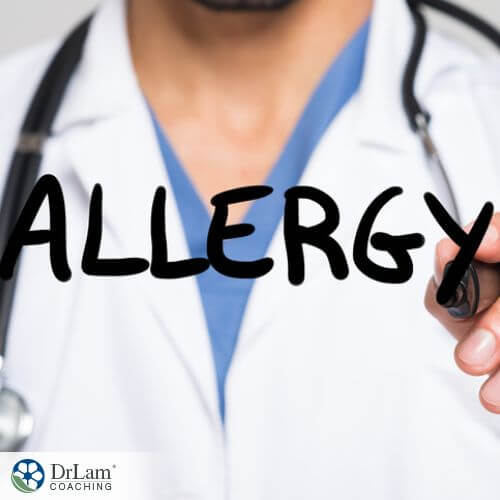 Everyone seems to have allergies these days and allergy symptoms can severely impact your quality-of-life day to day. But the itchy, wheezing, sneezy feelings may actually be symptoms of something that’s a little more complicated than your seasonal enemy. They may be a sign of histamine intolerance, which is a fairly new idea to the medical establishment but one that could be impacting the lives of a lot of people.
Everyone seems to have allergies these days and allergy symptoms can severely impact your quality-of-life day to day. But the itchy, wheezing, sneezy feelings may actually be symptoms of something that’s a little more complicated than your seasonal enemy. They may be a sign of histamine intolerance, which is a fairly new idea to the medical establishment but one that could be impacting the lives of a lot of people.
So, if you think your allergy symptoms may be a sign of something more, then here’s what you need to know about histamine and what happens when you have an intolerance.
Histamines are chemicals that are part of your body’s defense system. They’re made by your immune system and their basic function is to get rid of anything that causes an allergic reaction. Histamines are also found in lots of different types of foods, which is why you may react to certain foods if you have histamine intolerance.
When you encounter an allergen, such as pollen, histamine is released and causes sneezing and a runny nose. The goal of these symptoms is to get the allergen out of your body before it can cause damage. Histamine works similarly every time you encounter an allergen, causing symptoms that help to expel the allergen from your body.
In addition, histamine is responsible for triggering stomach acids that help with digestion and communicating messages to your brain. It’s also involved in:
This is why, if you’re intolerant to histamine, it will severely impact your overall health.
Unlike how it sounds, histamine intolerance doesn’t mean that you’re allergic to histamine. Instead, it means that there’s too much histamine in your body. Histamine intolerance is linked to gut inflammation and diamine oxidase (DAO) deficiency. This is the enzyme that helps to break down dietary histamine.
If you have an intolerance, it means that there’s too much inflammation and not enough DAO in the body. So when you eat foods that contain histamine, your body can’t break it down. All these histamines circulate in the gut, which can trigger reactions and the production of more histamine, worsening the problem. Your body may also absorb the histamine into your bloodstream, where it can attach to histamine receptors and trigger more intolerance symptoms.
In the early stages of intolerance, this can cause symptoms such as:
These symptoms are bad enough. However, if you ignore the issue, then it can develop into severe histamine intolerance, which means that you may experience symptoms such as:
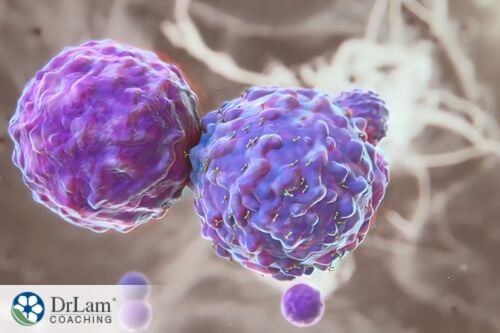 Histamine intolerance and mast cell activation syndrome (MCAS) are often connected together. They can occur at the same time, but they’re actually very different health issues. MCAS occurs when the mast cells, which help regulate the immune system as well as other functions in the body, lose specificity and overreact. They can start overreacting to almost anything, meaning that you can have allergic symptoms to almost anything.
Histamine intolerance and mast cell activation syndrome (MCAS) are often connected together. They can occur at the same time, but they’re actually very different health issues. MCAS occurs when the mast cells, which help regulate the immune system as well as other functions in the body, lose specificity and overreact. They can start overreacting to almost anything, meaning that you can have allergic symptoms to almost anything.
In contrast, an intolerance to histamine is related to having inflammation and gut problems that cause high histamine levels in the body. The struggle to break down all this histamine causes your body to produce more of it. And then, when you eat histamine in food, it makes your symptoms even worse.
Although these two disorders aren’t connected, they do have similar symptoms. That’s why it’s so important that you see an expert who can identify what’s happening with your body rather than guessing and potentially getting it dangerously wrong.
Histamine intolerance is basically linked to inflammation in the gut, which prevents the breakdown of histamine. Histamine is broken down by an enzyme known as diamine oxidase (DAO), so when there isn’t enough of this enzyme, your histamine levels will rise.
There are two main issues that are known to cause gut inflammation and high histamine levels.
The first is bacterial overgrowth. When your body doesn’t digest food properly, it can cause bacteria to become overgrown. As a result of this, your body overproduces histamine and there may not be enough DAO to break down the histamine safely, meaning that it remains in your body.
Secondly, it's also possible to develop a DAO deficiency, which can lead to intolerance. This can occur because of:
Identifying whether you have a histamine intolerance isn’t as easy as simply having a blood test. Instead, your doctor will need to eliminate other disorders and allergies that could be causing the same symptoms. You may need to try:
It’s important that you go through this process, as you should never self-diagnose a histamine intolerance.
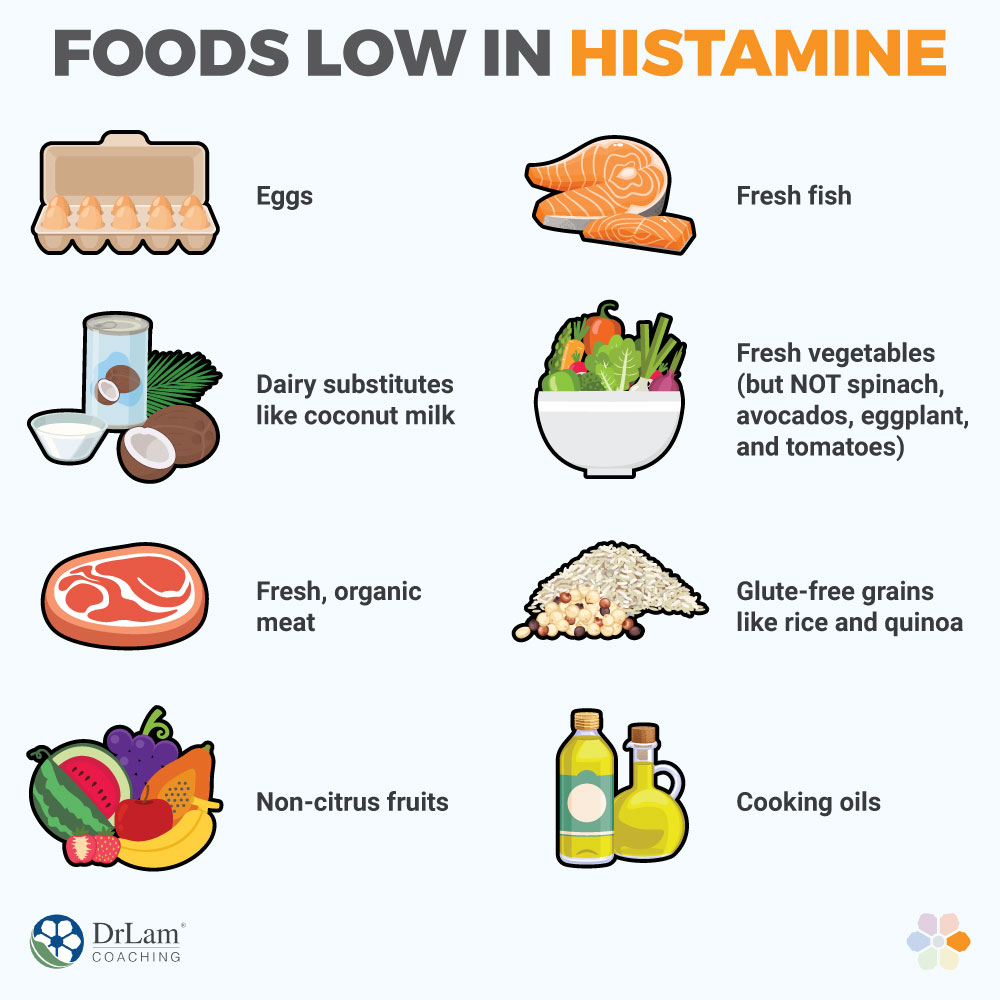
Histamine intolerance can cause very uncomfortable symptoms, but you can manage it through your diet. First and foremost, you need to ensure that you’re eating a diet that’s varied and provides all the nutrients that your body needs to produce DAO and regulate your histamine levels.
Here are some of the nutrients that will help with that:
Your diet should also focus on foods that are low in histamine such as:
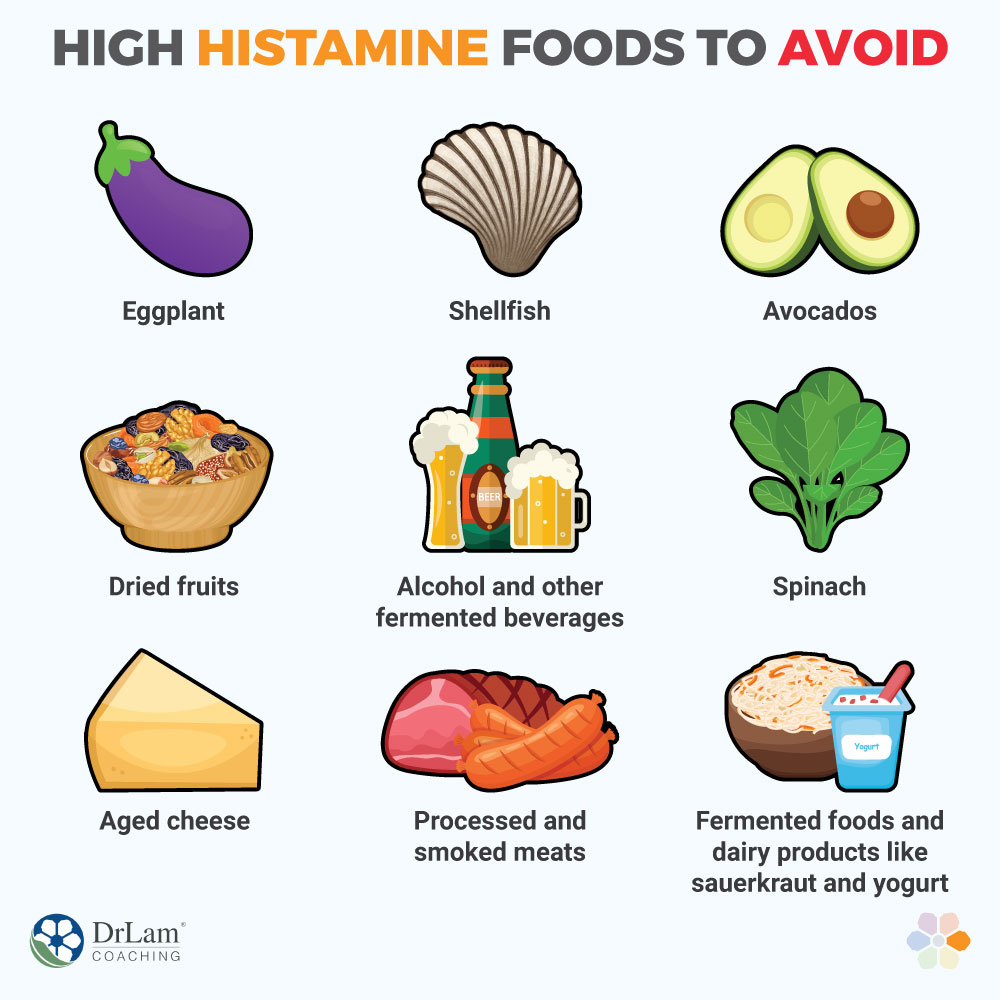
There are also certain foods that you should avoid. There are many foods that contain varying levels of histamine, but some contain high levels and should be reduced or eliminated quickly if you have an intolerance.
Here are the top foods that you should be avoiding:
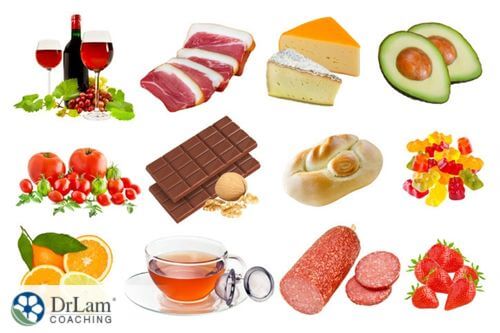
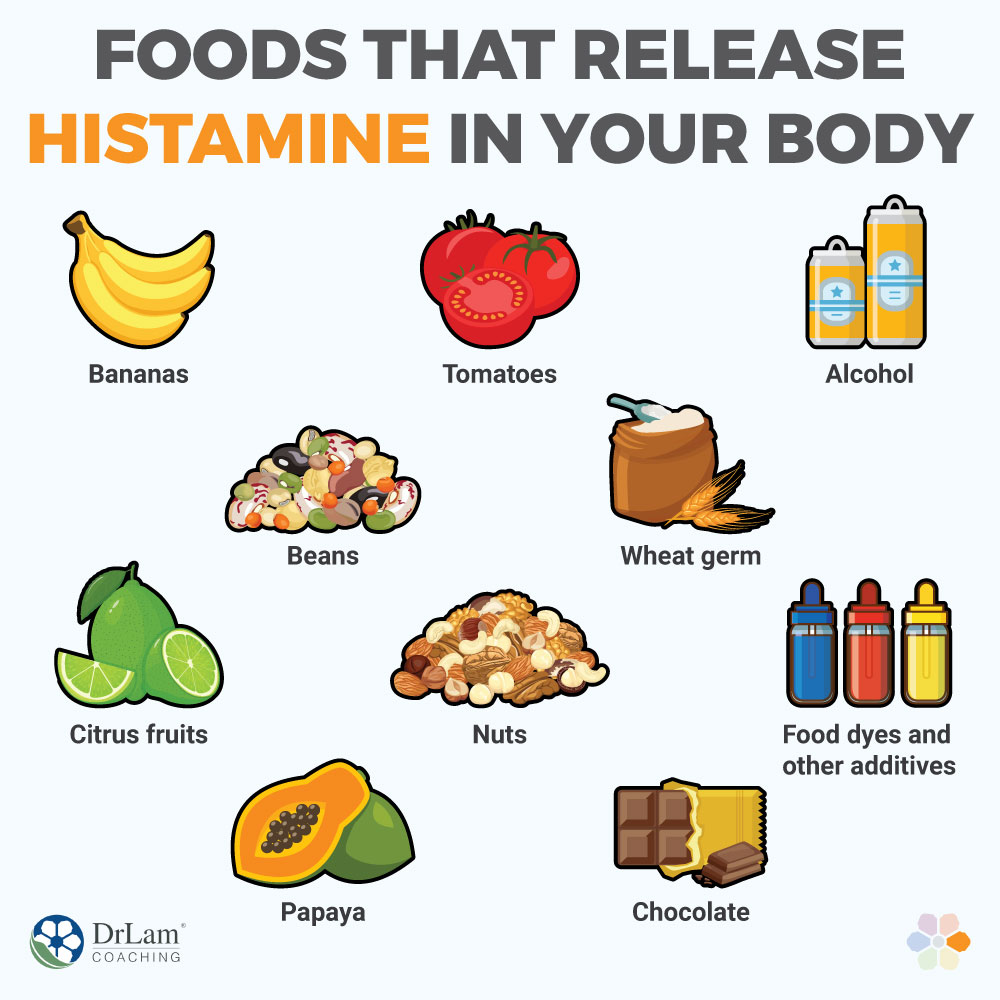
There are also foods that prompt the release of histamine in your body and should be avoided. They are:
There are also foods that will stop your body from producing enough DAO to break down the histamine in your body. You should reduce or eliminate these foods as well if you’re having issues:
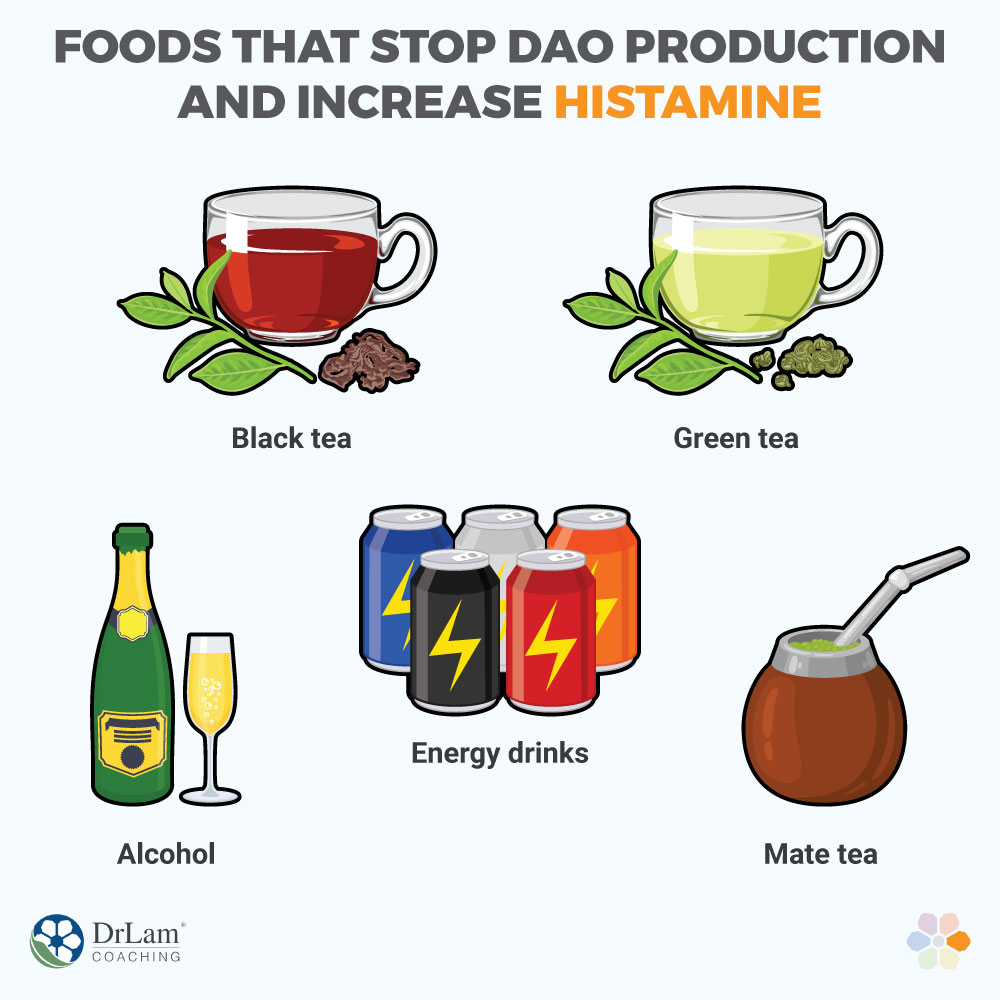
There are also some other strategies you can adopt that may impact the health of your gut and inflammation levels, which are pivotal to histamine production and breakdown. Here are some ideas for that:
Stress has a huge impact on your gut and its health as well as inflammation levels, so try to reduce your stress levels with yoga, breathing exercises, hobbies, or other strategies that work for you.
Histamine intolerance begins in your gut, so you need to look after it if you’re going to manage your condition and your symptoms. Some ideas for improving your gut health are:
You can also try supplementing if you’re really struggling to get all the nutrients that you need from food. However, you need to be careful doing this, as supplements are never as safe as getting nutrients from food, so should be approached carefully. Some useful supplements for combating histamine intolerance are:
Make sure that you talk to your doctor before you start supplementing with these supplements to ensure that they are right for your body and your condition.
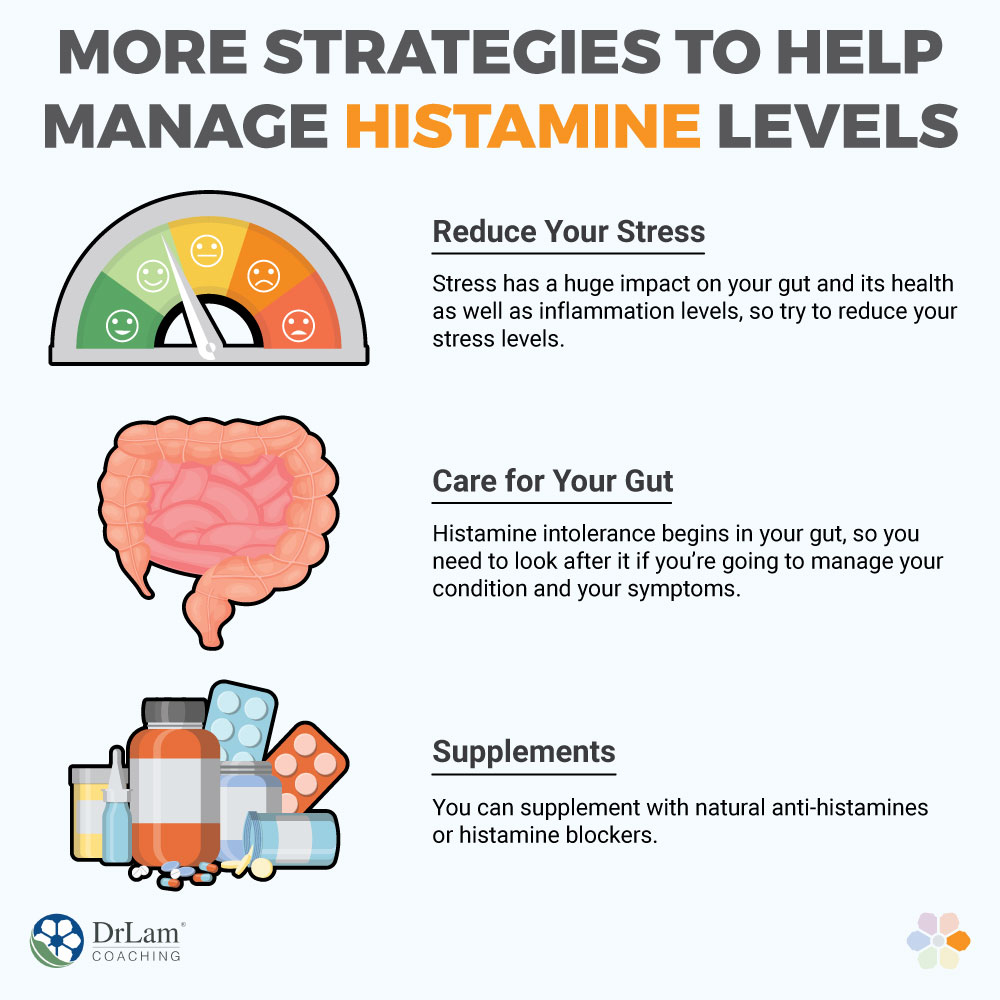
People with Adrenal Fatigue Syndrome (AFS) often experience allergy symptoms that get worse or appear for the first time. AFS occurs when you’re stressed over the long term. This can lead to chronic inflammation and leaky gut, which allows food particles to enter the bloodstream where they do not belong and cause allergies.
 This happens because long-term stress results in the long-term activation of the NeuroEndoMetabolic (NEM) stress response. The NEM stress response is designed to help you survive stressful times. However, it’s also meant to be a short-term solution to the problem. Because stress in the modern world tends to be chronic and ongoing, this NEM stress response becomes overused in many people.
This happens because long-term stress results in the long-term activation of the NeuroEndoMetabolic (NEM) stress response. The NEM stress response is designed to help you survive stressful times. However, it’s also meant to be a short-term solution to the problem. Because stress in the modern world tends to be chronic and ongoing, this NEM stress response becomes overused in many people.
The NEM stress response is driven by cortisol, the so-called stress hormone. When you’re stressed, the NEM stress response activates, and the adrenals produce more cortisol. And when you’re chronically stressed, the NEM stress response stays active, and cortisol remains high. This can result in imbalances in the body’s organs and systems, troubling symptoms, and adrenal fatigue as well as malfunctions in the NEM stress response itself.
As AFS develops, it can bring on a number of health problems, including chronic inflammation and imbalances in the Detoxification Circuit, which is implicated in histamine intolerance.
The Detoxification Circuit is responsible for removing toxins and other harmful substances from your body and is essential for your overall health and wellbeing. Unfortunately, the modern world is filled with toxins, from heavy metals to toxins that are produced by bacteria and yeast in the gut.
The detoxification process is performed by the liver, the immune system, and the extracellular matrix (ECM). When you’re healthy, this circuit gets rid of toxins and metabolites - the substances that are produced as a result of metabolism - without you even knowing it.
When one of these components becomes dysfunctional, however, it tends to affect the health of the others, reducing your body's ability to remove toxins overall and leading to symptoms.
One of the issues that occurs with Detoxification Circuit malfunctions is immune system hyperactivity. This occurs when you have AFS, and your immune system senses the build-up of toxins as the liver and ECM become congested. As the immune system becomes hyperactive, it can result in several health issues that are associated with high histamine levels or decreased function of the enzyme DAO that breaks down histamine. These issues are:
All of these issues make it more likely that you will have high histamine levels, which can contribute to histamine intolerance. That’s why, if you have AFS and your Detoxification Circuit is unbalanced, it’s worth talking to your doctor about the impact that histamine may be having on your health.
Histamine intolerance can look just like allergies, and the symptoms can severely impact your health and your quality of life. It’s very important that you talk to a doctor about this issue and not decide that you have an intolerance without getting a medical opinion first. Here’s what to do if you think you may have developed an intolerance to histamine:
For more information on histamine and how it can impact your health, talk to our team at +1 (626) 571-1234 or click here.
Histamine intolerance means that your body is dealing with too much histamine, causing symptoms similar to those that you would experience if you had allergies. It’s a very common issue and often ignored. You need to see your doctor if you’re concerned about this issue.
